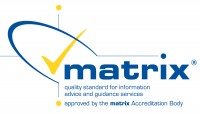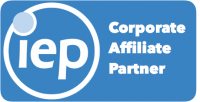As AI Rises, We Can’t Let Inclusion Fall Behind

It’s a defining moment for technology and for society.
Artificial intelligence (AI) is moving fast. Investment is booming. Tools are being adopted across hiring, health, education, and public services. But as we pour time, money, and energy into AI, we’re seeing something else shrink: our collective commitment to inclusion.
At a recent King’s College London panel, a simple but powerful warning was shared: DEI (diversity, equity and inclusion) is going down, just as AI is going up. And if we’re not careful, the gains we’ve made on equity could be quietly erased by the systems we’re building next.
This isn’t just a concern for tech companies. It’s a challenge for all of us, especially those working to create fairer opportunities in employment, education, and society.
What the Experts Are Saying
At the "Digital Futures of Diversity" panel, experts like Birgit Neu, Professor Elisabeth Kelan, Dr Nessa Keddo, and Lewis Iwu spoke about a dangerous drift in the AI world: where inclusion efforts are becoming an afterthought, and bias is treated like a bug rather than a systemic risk.
Some of the clearest messages from the event included:
- AI and DEI
are being developed in silos. AI teams often work without input from inclusion experts, leading to tools that may be efficient, but not equitable.
- Budgets tell the real story
AI investment is increasing while DEI teams are seeing funding cuts, staffing reductions, and less visibility.
- Small organisations are being left behind
Charities and community groups lack the time, money, and digital infrastructure to keep pace with AI developments.
- Access to AI tools is not equal
Disadvantaged communities don’t always have the devices, data, or digital literacy needed to benefit.
- Bias mitigation isn’t the same as inclusion
Many “responsible AI” practices only fix obvious problems, they don’t ask who was excluded from the design process in the first place.
These are not fringe concerns. They’re foundational issues that affect everything from hiring algorithms to educational content to how we interact with public services.
And the consequences are already being felt.
The Digital Divide Is Growing, Again!
We’ve seen this before.
When digital services expanded during the pandemic, those without internet access, computer literacy, or private space were cut off. Now, AI risks deepening those divides unless we change course.
Today, we’re seeing:
- Premium AI tools like ChatGPT being rolled out to those who can afford them, while small charities still rely on paper-based filing systems.
- Young people from disadvantaged backgrounds being offered AI literacy support, but only in pockets, not as the norm.
- Large employers creating AI fluency guides for their workforce, while community-led organisations struggle to keep up.
In short: we’re not all starting from the same place. And if inclusion isn’t built in, inequality will be built in instead.
Inclusion and AI: False Trade-Off or Missed Opportunity?
There’s a worrying assumption that inclusion and innovation are in tension, that making things fair slows things down.
But as Professor Kelan put it at the King’s event: “Tech solutionism is part of the problem.” We don’t need more tools. We need to use the tools we already have: better, and more thoughtfully.
At PeoplePlus, we understand this tension firsthand.
We’re working across prisons, communities, and care to help people build digital skills, access work, and gain confidence with emerging technologies. Many of the people we support won’t be designing AI systems, but they’ll be affected by them. They’ll apply for jobs screened by AI. They’ll access public services powered by it. And they deserve to be included, understood, and empowered at every step.
That’s why we believe inclusive hiring, inclusive training, and inclusive technology go hand in hand.
What Can Be Done and What We’re Doing
1. Bring Inclusion Experts Into AI Conversations Early
Don’t bolt on inclusion at the end. Involve people with lived experience, community organisations, and DEI professionals when scoping, designing and testing AI tools.
At PeoplePlus, our Social Recruitment Service connects employers with jobseekers who are often excluded from traditional recruitment, people with criminal convictions, long-term unemployment, or caring responsibilities. We support employers to rethink how they hire, not just who they hire.
2. Share Tools, Not Just Talk
If AI fluency is the new literacy, let’s treat it that way. Large organisations can support smaller ones by sharing plain-language guides, offering training time, and partnering with local groups.
3. Match AI Investment with DEI Investment
As budgets shift towards digital transformation, DEI can’t be the casualty. Inclusion is not an optional extra. It’s the difference between systems that empower and systems that exclude.
We encourage employers to sign the Social Recruitment Covenant a simple, practical way to show public commitment to inclusive hiring and fair opportunity.
👉 Sign it today to show the world you're a good employer:
https://forms.office.com/Pages/DesignPageV2.aspx?subpage=design&id=ur60fvunwESUTHHytF8YIDOkdomvEt5OqtjNQEYjwS1UOEpWTlAwMEU5VTZUTVZITTg4T0JGUzc0VC4u
4. Make AI Education Accessible to All
Understanding how AI works isn’t just for data scientists. Everyone deserves to feel confident and informed when they interact with AI tools, whether that’s in applying for a job, accessing services, or making decisions in the workplace.
We deliver education in 23 prisons, and operate WayoutTV in 50, providing accessible, engaging information to people who are often overlooked in national conversations about digital skills. We're exploring how AI literacy can be embedded into these spaces next.
5. Design With, Not Just For
Lewis Iwu said it best: “The most powerful thing is to educate ourselves, but crucially, to hear people’s thoughts and co-build it together.”
Technology should never be something done to people. It should be something built with them.
Whether it’s building inclusive employment pathways, co-designing services, or shaping public policy, those with lived experience must have a seat at the table.
This Isn’t Just a Tech Issue, It’s a Fairness Issue
What’s happening in AI is bigger than technology. It’s about whose needs are considered, whose voices are heard, and who gets left out.
At PeoplePlus, we believe work can change lives. But only if access to opportunity is fair.
That means recognising that not everyone has the same starting line and working to remove the barriers that stand in the way. Whether those barriers are financial, digital, or social.
AI has the potential to support that mission or to make it harder. It all depends on the choices we make now.
Let’s choose to build systems that work for everyone.
Let’s choose to keep inclusion at the heart of progress.
If you’d like to explore how your organisation can commit to fairer hiring and future-ready skills:
🔗 Find out more about the Social Recruitment Covenant
✍️ Sign it today








